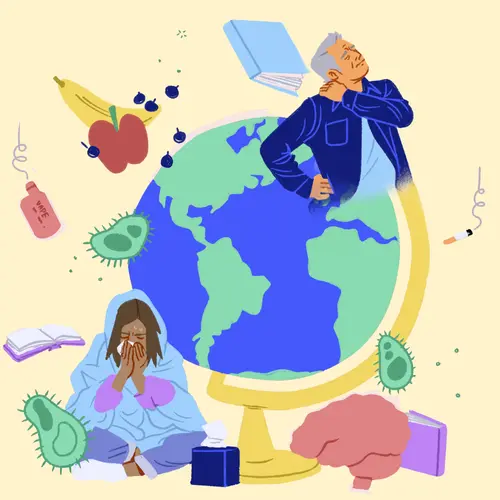When your doctor takes your blood pressure, they’ll tell you two numbers:
- The first is your systolic blood pressure -- the force on your arteries as your heart pumps blood.
- The second is your diastolic blood pressure -- the force on them when your heart is resting.
They’ll say the numbers as systolic pressure “over” diastolic pressure. For example, a healthy reading is below 120 over less than 80.
If your systolic blood pressure is higher than 130 but your diastolic blood pressure is under 80, that’s called isolated systolic hypertension. It’s the most common kind of high blood pressure in older people.
You probably won’t know you have it unless your doctor tells you -- there usually aren’t any noticeable signs of it until it causes serious health issues. That’s why high blood pressure is sometimes called “the silent killer.”
What Problems Can It Cause?
All types of high blood pressure, including isolated systolic hypertension, can slowly damage the inside of your arteries and cause tiny tears in their walls. A chemical called LDL cholesterol can build up in those damaged blood vessels and form a layer called plaque. That makes your arteries narrower and raises your blood pressure even higher.
When that happens, the arteries that carry oxygen to your heart can get blocked, and that can lead to a heart attack or a stroke (when blood flow is limited or cut off to part of your brain). It also can make blood vessels in your brain burst, and that can cause a stroke, too.
In other parts of your body, it can strain the blood vessels in your eyes and make you lose your eyesight or damage the arteries around your kidneys so they don’t filter your blood the way they should.
Who Gets Isolated Systolic Hypertension?
Older people are more likely to have it, because systolic blood pressure usually goes up as you age.
- More than 30% of women over 65 and more than 20% of men have this condition.
- If your parents had high blood pressure, you may be more likely to have it.
- African-Americans are more likely than other groups to have high blood pressure.
How Is It Treated?
If your systolic blood pressure is too high, your doctor may prescribe medicine to help bring it down. Drugs used to control blood pressure include:
- Diuretics (water pills) to help your kidneys flush water and sodium from your body
- Beta-blockers to make your heart beat slower and less forcefully
- Angiotensin-converting enzyme (ACE) inhibitors, angiotensin II receptor blockers (ARBs), or calcium channel blockers to relax your blood vessels
- Renin inhibitors to keep your kidneys from making a chemical that can lead to higher blood pressure
Your doctor also may recommend you do a few other things:
- If you smoke, stop. There are lots of good reasons for this, but nicotine in cigarette smoke can raise your blood pressure.
- Lower the amount of salt in your diet.
- Cut back on alcohol if you drink.
- Get to or stay at a healthy weight.
- Exercise regularly.

